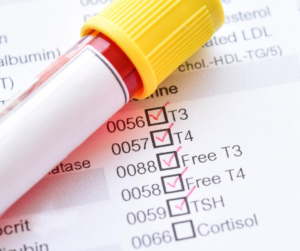If I had a dollar for every person who asked me this question over the past decade, I would be retired (okay maybe not, but I’ve been asked a lot!). Yes, metabolic testing is a thing and I absolutely encourage it.
Metabolism seems to be this mysterious bodily process everyone knows about, but very few people actually understand how it functions. It isn’t something your doctor typically tests for and few companies in our industry have the proper equipment to accurately test it. As a result, most believe their metabolism is running at a snail’s pace and they are doomed for eternity to be at its molasses-like mercy. But trust me: It may not be as hopeless as you think. By getting metabolic testing and understanding the main factors that contribute to your metabolism’s speed, you can create a measurable benchmark to kickstart your wellness journey.
What is Metabolism & How is it Measured?

In its simplest form, metabolism is a measurement of how much energy your body requires each day to breathe, think, circulate blood, digest food, and all other bodily functions required for life. The measurement is usually labeled with multiple acronyms that all roughly mean the same thing: RMR (Resting Metabolic Rate), BMR (Basal Metabolic Rate), and REE (Resting Energy Expenditure).
At Nutrition HealthWorks, we use what’s called an “indirect calorimeter,” which requires the individual to fast for four hours prior and breathe normally into a mouthpiece for a few minutes — that’s it! It’s a simple process, but I promise the information gained through metabolic testing can completely change the way you view and plan your overall health and wellness strategy.
Can Your Metabolism Change?

Let’s make one thing clear: There is no “good” or “bad” metabolism, and it doesn’t change as frequently or quickly as you think. Sure, there are factors that can temporarily increase metabolism — such as a cup of coffee, exercise, or a stressful moment — but it typically stays balanced throughout the week. A few long-term factors I prefer to focus on that influence metabolism include the following:
-
Food
-
Physical Activity
-
Lean Body Mass (Muscle)
-
Hormones
Three of these four facets are variables you can control, which means it’s likely you can change your metabolism by adjusting your food, activity, or muscle. You may want to do this if the test proves your metabolism is below average, which can cause struggles with your weight. On the flip side, if your metabolism is right where it needs to be, just stick to your current food and exercise regimen which should keep it bumping along hunky-dory.
Why Get Metabolic Testing with Nutrition HealthWorks?
There are plenty of reasons to have your metabolism tested. Many use it as a tool to manage weight change while others use it to adjust their physical performance. Still others use it as a tool to keep up-to-date on how the aforementioned variables are affecting their metabolism over time.
However you choose to use metabolic testing, it’s an excellent way to create a starting point when constructing a personalized health plan and setting goals. From there, Nutrition HealthWorks can create custom meal plans to fit those goals and even redesign your favorite recipes to match. Any age can perform the test, and with a guaranteed 99.9% accuracy, it’s a no brainer. Just don’t think about it too hard or you’ll burn too many calories!
Learn more about our metabolic testing services by scheduling a visit with one of our registered dietitians today.
